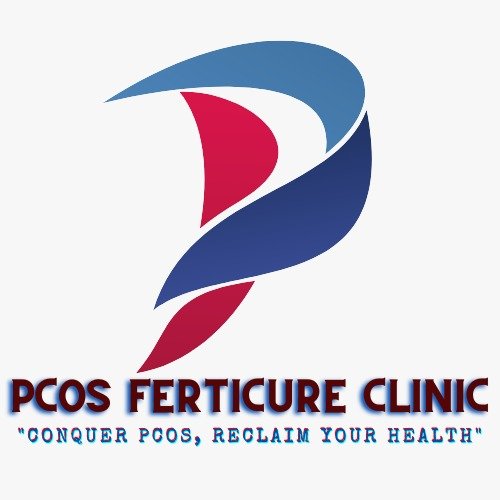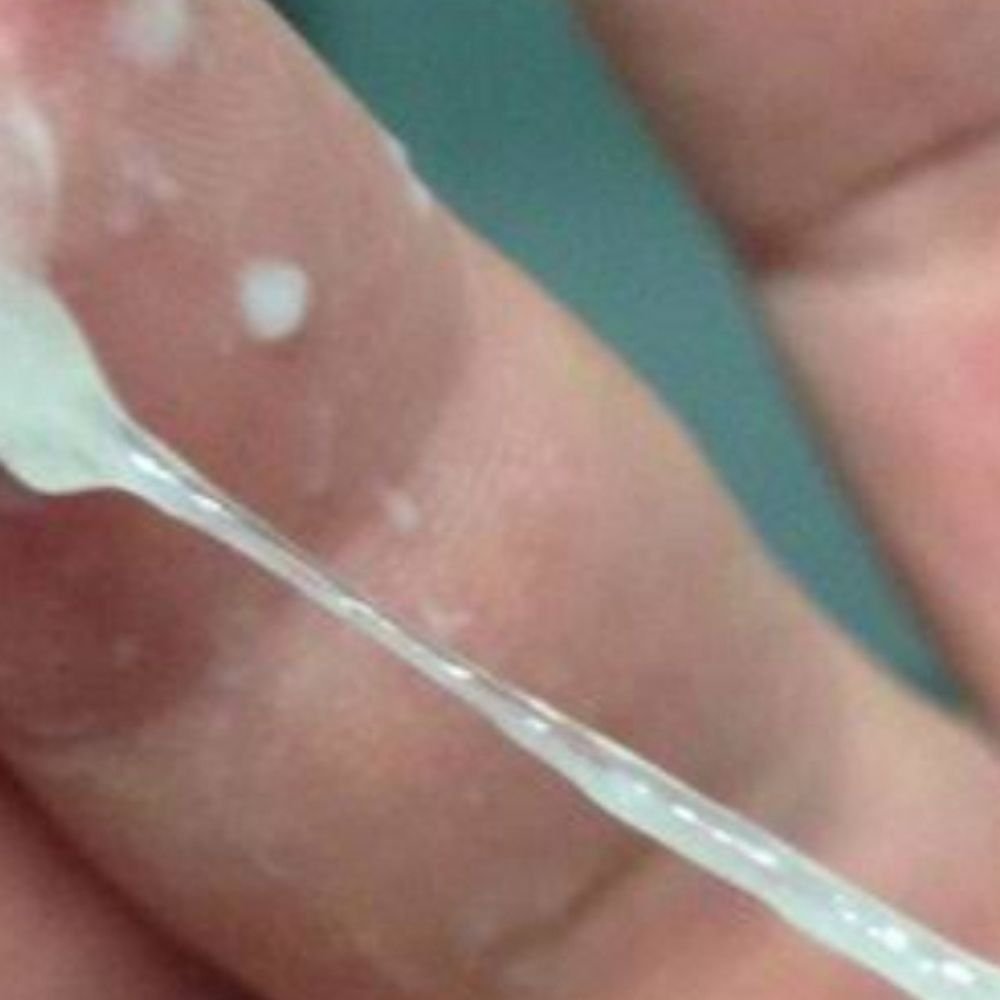PCOS can make weight loss a challenging journey, but with the right approach and determination....
Read more1. Introduction to PCOS and White Discharge
Polycystic Ovary Syndrome (PCOS) is a complex hormonal disorder that affects a significant number of women, often presenting a multitude of symptoms that go beyond its well-known impact on fertility and menstrual cycles. Among the various symptoms associated with PCOS, abnormal vaginal discharge, commonly referred to as "white discharge" or medically known as "leukorrhea," is a notable concern.
1.1 Understanding PCOS
PCOS is characterized by hormonal imbalances that disrupt the normal functioning of the ovaries. The hallmark of PCOS is the excessive production of androgens, which are typically considered male hormones but are also present in females. These hormonal fluctuations can lead to an array of symptoms, including changes in menstrual patterns, the development of ovarian cysts, and indeed, alterations in vaginal discharge.
1.2 The Role of Inflammation
Inflammation within the reproductive organs is a contributing factor to the variations observed in vaginal discharge among women with PCOS. Inflammatory processes can interfere with the production and consistency of cervical mucus, resulting in changes in the appearance and texture of the discharge.
1.3 The Impact of Sebum Production
PCOS is frequently accompanied by changes in sebum production, the natural oil produced by the skin. These changes can extend to the genital area and influence the quality and consistency of vaginal discharge. Heightened sebum production may contribute to a thicker or creamier texture in the discharge.
1.4 The Role of Genetics
Genetic factors can play a role in predisposing certain individuals to develop PCOS. While genetics alone may not be the sole cause of the condition, they can significantly influence susceptibility. Likewise, genetic factors can impact the presentation of symptoms, including the characteristics of white discharge in women with PCOS.
1.5 Psychological and Emotional Impact
Living with PCOS can be emotionally challenging due to the physical symptoms and potential implications for fertility. Coping with irregular menstrual cycles and abnormal vaginal discharge can lead to feelings of frustration, embarrassment, and anxiety. Addressing the psychological and emotional aspects of PCOS alongside its physical symptoms is essential for holistic care and well-being.
2. Causes and Triggers of PCOS-Related White Discharge
Understanding the underlying causes and triggers of white discharge in women with PCOS is crucial for effective management and treatment. PCOS-related white discharge can be influenced by various factors:
2.1 Hormonal Imbalances
Hormonal imbalances play a central role in PCOS and can directly affect the characteristics of vaginal discharge. Elevated androgen levels, insulin resistance, and disrupted ovarian function can all contribute to changes in discharge consistency and volume. Androgens, such as testosterone, can stimulate the sebaceous glands in the cervix, leading to increased mucus production and changes in its texture.
2.2 Insulin Resistance
Insulin resistance, a common feature of PCOS, can lead to increased androgen production. This hormonal imbalance can impact the glands in the cervix, altering the composition of cervical mucus and resulting in abnormal discharge. It's essential to address insulin resistance through lifestyle changes and, in some cases, medication to help manage PCOS-related white discharge.
2.3 Genetics
Genetic factors also contribute to the development of PCOS and its associated symptoms, including white discharge. Family history can increase the likelihood of developing PCOS, which, in turn, affects vaginal discharge patterns. While genetics may predispose individuals to PCOS, it's important to remember that lifestyle and environmental factors also play a significant role.
2.4 Lifestyle Factors
Certain lifestyle factors can exacerbate PCOS symptoms, including white discharge. Poor dietary choices, sedentary habits, and chronic stress can all impact hormonal balance and cervical mucus production. Making positive lifestyle changes, such as adopting a balanced diet, engaging in regular physical activity, and managing stress, can help improve the quality of vaginal discharge in women with PCOS.
3. Symptoms and Manifestations of PCOS-Related White Discharge
PCOS-related white discharge can manifest in various ways, and understanding the symptoms is crucial for timely intervention and management. Here are the key aspects to consider:
3.1 Types of Discharge
The characteristics of PCOS-related white discharge can vary, from being thin and watery to thick and creamy. Some women may also notice an increase in the volume of discharge. Understanding the types of discharge can provide insights into the underlying hormonal changes.
3.2 Distribution of Discharge
The distribution of white discharge in women with PCOS may not be uniform. Some may experience it consistently throughout their menstrual cycle, while others may notice variations. Recognizing patterns in the distribution of discharge can help identify hormonal fluctuations.
3.3 Associated Symptoms
PCOS-related white discharge can be accompanied by other symptoms, such as irregular menstrual cycles, pelvic pain, and hormonal acne. Understanding the constellation of symptoms is essential for a comprehensive evaluation and tailored treatment approach.
4. Diagnosis and Evaluation of PCOS-Related White Discharge
Accurate diagnosis and evaluation are essential in addressing PCOS-related white discharge. Healthcare professionals use various methods to assess the condition:
4.1 Clinical Assessment
A thorough clinical examination helps healthcare providers assess the nature of white discharge, its consistency, and any associated symptoms. Clinical assessment is often the first step in diagnosis.
4.2 Hormonal Evaluation
Blood tests are commonly used to evaluate hormonal imbalances associated with PCOS. Hormone levels, including androgens, estrogen, and progesterone, are measured to identify deviations from the normal range.
4.3 Dermatological Evaluation
In cases where white discharge is accompanied by skin issues, dermatological evaluation may be necessary. Dermatologists can assess skin conditions, including acne, and recommend appropriate treatments.
4.4 Ultrasound Imaging
Transvaginal ultrasound is a valuable tool for visualizing the ovaries and identifying cysts or structural abnormalities. It helps confirm the presence of polycystic ovaries, a key diagnostic criterion for PCOS.
4.5 Differential Diagnosis
Differential diagnosis is crucial to rule out other potential causes of white discharge, such as infections or cervical issues. Healthcare providers consider various factors to distinguish PCOS-related discharge from other conditions.
4.6 Psychological Assessment
Understanding the psychological impact of PCOS-related white discharge is essential. Healthcare professionals may conduct assessments to address emotional well-being and provide necessary support.
5. Treatment Options for PCOS-Related White Discharge
Effective management of PCOS-related white discharge involves a tailored approach addressing hormonal imbalances and symptom relief. Here are common treatment options:
5.1 Lifestyle Modifications
Lifestyle changes play a pivotal role in managing PCOS. Adopting a balanced diet, regular physical activity, and stress management can help regulate hormones and improve the quality of white discharge.
5.2 Medications
Medications may be prescribed to address specific symptoms of PCOS, including white discharge. Hormonal contraceptives, anti-androgens, and insulin-sensitizing agents can be effective in regulating hormonal imbalances.
5.3 Dermatological Procedures
In cases where white discharge is associated with skin issues, dermatological procedures such as chemical peels, microdermabrasion, or laser therapy may be recommended to address both skin and discharge concerns.
6. Tips for Preventing and Managing PCOS-Related White Discharge
Proactive self-care is essential for effectively preventing and managing PCOS-related white discharge. Here are some valuable tips:
6.1 Skincare Routine
Establish a consistent skincare routine to manage skin-related symptoms. Use gentle cleansers, exfoliate appropriately, and prioritize moisturization to maintain skin health.
6.2 Diet and Nutrition
Opt for a balanced diet rich in whole foods, fruits, vegetables, and lean proteins. Reducing sugar and processed food intake can help regulate hormones and improve discharge quality.
6.3 Regular Physical Activity
Incorporate regular physical activity into your routine. Exercise can help manage weight, reduce insulin resistance, and positively impact hormonal balance.
6.4 Stress Management
Practice stress-reduction techniques such as meditation, yoga, or mindfulness. Chronic stress can exacerbate PCOS symptoms, including white discharge.
7. Natural Remedies for PCOS-Related White Discharge
In addition to conventional treatments, natural remedies can complement the management of PCOS-related white discharge. Here are some natural options to consider:
7.1 Tea Tree Oil
Tea tree oil possesses antimicrobial properties and may be used in diluted form as a topical application to address skin and discharge issues.
7.2 Green Tea
Green tea contains antioxidants that can help regulate hormones and improve overall skin health. Incorporating it into your diet may have beneficial effects.
7.3 Aloe Vera
Aloe vera gel can soothe skin irritations and may be applied topically to alleviate discomfort associated with white discharge.
7.4 Apple Cider Vinegar
Apple cider vinegar has antibacterial properties and can be used as a natural rinse for external genital hygiene. Dilute it before use.
7.5 Honey and Cinnamon Mask
A honey and cinnamon mask may help manage acne-related symptoms and improve overall skin health when applied as a gentle face mask.
8. Lifestyle Changes to Improve PCOS and Skin Health
Adopting a healthier lifestyle can have a profound impact on managing PCOS-related white discharge and overall skin health. Consider the following lifestyle changes:
8.1 Balanced Diet
Prioritize a balanced diet rich in nutrients and fiber. Include a variety of fruits, vegetables, whole grains, and lean proteins to support hormonal balance.
8.2 Physical Activity
Incorporate regular physical activity into your routine. Exercise can help manage weight, reduce insulin resistance, and improve overall skin health.
8.3 Stress Management
Practice stress management techniques such as meditation, deep breathing, or yoga. Reducing stress can positively impact hormonal balance and skin health.
8.4 Sleep Hygiene
Prioritize a healthy sleep routine. Aim for 7-9 hours of quality sleep each night to support overall well-being and hormonal regulation.
9. Skincare Tips for PCOS-Related White Discharge
Effective skincare routines can help manage skin issues associated with PCOS-related white discharge. Follow these skincare tips:
9.1 Gentle Cleansing
Use a mild, fragrance-free cleanser to clean your face and genital area. Avoid harsh soaps that can disrupt the skin's natural balance.
9.2 Exfoliation
Exfoliate your skin regularly to remove dead cells and prevent clogged pores. Opt for a gentle exfoliator suited for your skin type.
9.3 Moisturization
Keep your skin well-hydrated with a non-comedogenic moisturizer. Proper moisturization can prevent excessive dryness and maintain skin health.
9.4 Sun Protection
Apply a broad-spectrum sunscreen with at least SPF 30 to protect your skin from UV damage. Sun protection is crucial, especially if you're using acne medications.
9.5 Makeup Choices
Choose makeup products that are non-comedogenic and labeled as suitable for sensitive or acne-prone skin. Avoid heavy, pore-clogging makeup.
10. Consulting a Dermatologist for PCOS-Related White Discharge
While self-care and skincare routines can help manage PCOS-related white discharge, it's essential to seek professional guidance when needed. Dermatologists are experts in diagnosing and treating skin conditions, including white discharge associated with hormonal imbalances in PCOS.
10.1 Recognizing When to Consult
Knowing when to consult a dermatologist is crucial for timely treatment:
- Severe White Discharge: If you have severe, persistent, or uncomfortable white discharge that doesn't respond to over-the-counter remedies, it's time to consult a dermatologist.
- Scarring Risk: If you're at risk of scarring due to white discharge-related skin issues, seeking professional help can prevent long-term skin damage.
- Psychological Impact: White discharge can affect your self-esteem and emotional well-being. If it's causing emotional distress, consulting a dermatologist for effective solutions is recommended.
10.2 Treatment Options
Dermatologists offer a range of treatment options tailored to your skin type and the severity of white discharge:
- Topical Medications: Dermatologists may prescribe topical treatments like creams, ointments, or gels containing specific active ingredients to target white discharge and associated skin concerns.
- Oral Medications: In some cases, oral medications such as antibiotics, antifungals, or hormonal therapies may be recommended to address the underlying causes of white discharge.
- In-office Procedures: Dermatologists can perform procedures like chemical peels, microdermabrasion, or laser therapy to address white discharge and improve skin texture and appearance.
10.3 Collaborative Approach
Your dermatologist may collaborate with your healthcare provider to address both the hormonal aspects of PCOS and the skincare aspects of white discharge. This collaborative approach ensures comprehensive care tailored to your unique needs.
In conclusion, consulting a dermatologist when dealing with PCOS-related white discharge is a proactive step to achieve clearer, healthier skin. Dermatologists can customize treatment plans based on your unique needs and help you regain confidence in your skin.
Conclusion
PCOS-related white discharge can be a challenging symptom, affecting both physical comfort and emotional well-being. However, with the right knowledge and proactive measures, managing white discharge is possible.
This comprehensive guide has explored the causes, symptoms, diagnosis, and treatment options for PCOS-related white discharge. It's crucial to remember that every individual's experience with PCOS is unique, and treatment approaches should be tailored accordingly.
Whether you're adopting lifestyle changes, exploring natural remedies, or seeking guidance from dermatologists, the key is to take control of your health and well-being. Remember that self-care is an essential part of managing PCOS, and you're not alone in your journey.
By staying informed, seeking professional help when needed, and prioritizing self-care, you can effectively manage PCOS-related white discharge and work towards healthier, clearer skin. Empower yourself with knowledge, embrace a balanced lifestyle, and regain confidence in your skin and overall well-being.





